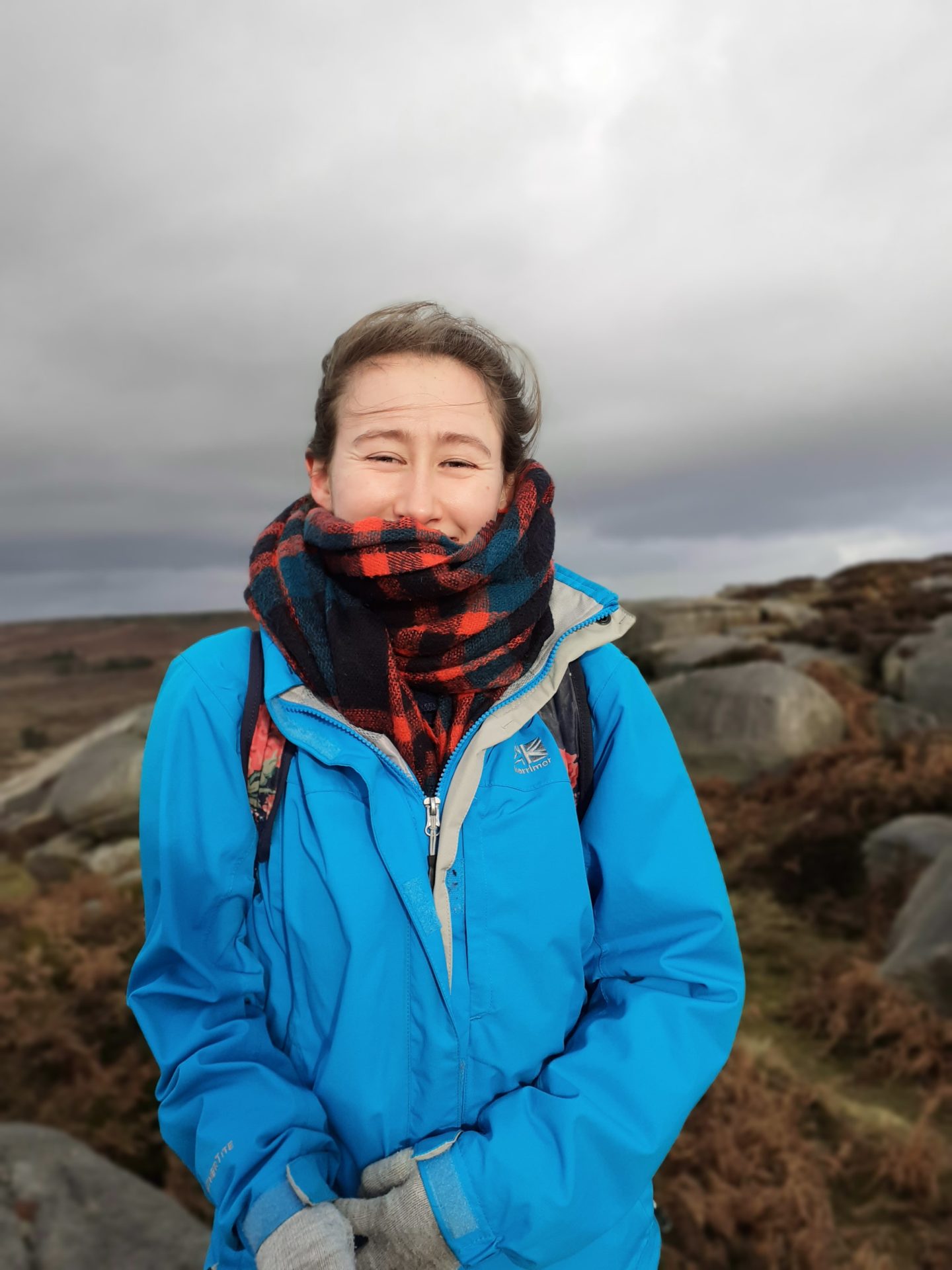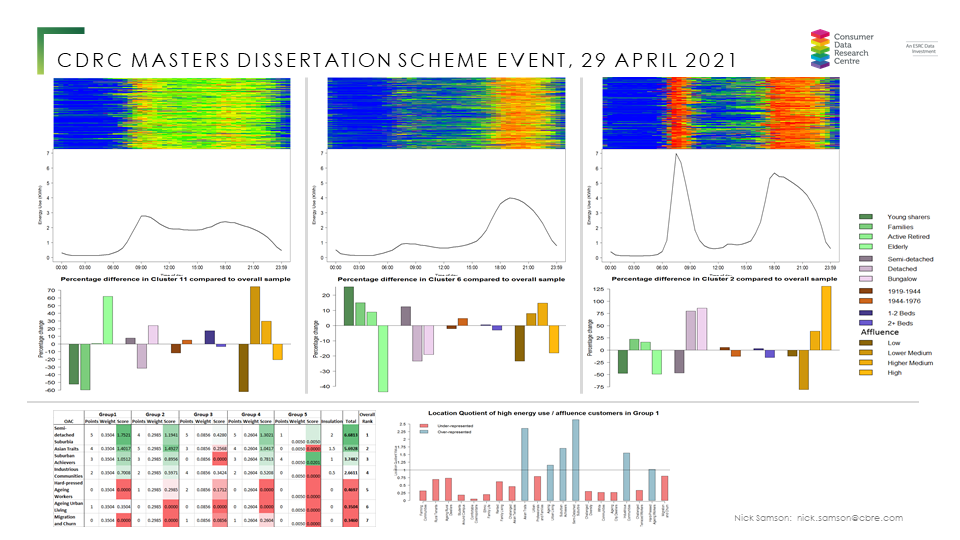Rosalind is one of the Leeds Institute for Data Analytics’s (LIDA) current Data Scientist Interns, with a background in Geography (BSc) and Geographical Information Systems (GIS MSc).
I’ve always been a fan of physical geography, but as module choices expanded throughout my degrees I was increasingly drawn to (spatial) data modules. I love using GIS and coding to solve big data challenges.
My internship has been made up of two six-month projects, both funded by the Consumer Data Research Centre (CDRC). My first project was titled ‘Isolation and Exclusion in a Social Distancing Covid World’. Here, I worked under the supervision of academics from the Universities of Newcastle and Leeds, aiming to identify people and households at risk of isolation and exclusion as a result of Covid lockdown rules.

My second project is in the world of nutrition where I’m working closely with Leeds academics, Dr Michelle Morris and Vicki Jenneson, and a retail partner. I am designing an open access tool which will assist retailers in implementing new policy restricting the promotion of foods that are high in fat, salt and sugar – a crucial part of reducing obesity in the UK.
What has been my experience of the LIDA Internship Programme?

As I’m sure many people would echo, the Covid pandemic has placed our jobs in unfamiliar situations. The reality of this internship being my first full-time post means that I’ve not been comparing my days to ways I have worked in the past. Instead, my experience has been shaped by remote team working with virtual training, coffee breaks and meetings. Although working from home (WFH) comes with its own challenges and complexities, I believe this has given me the capacity to be thankful to work on engaging projects rather than pining for something I used to have!
Due to the pandemic, many interns have been able to experience otherwise inaccessible conferences and workshops as they’ve transitioned online. I’ve been to events held by The Alan Turing Institute, the Royal Society, CDRC and more! Working as a remote cohort, the interns have set up coffee breaks and a weekly “pub” session to replicate those water-cooler conversations, lost due to WFH. This space allows us to talk about our projects, seek help from others who have different skillsets and to simply get to know each other.
What have I been proud to have accomplished so far on the internship?
Coding while WFH has been a true test of my perseverance. In the absence of spinning my chair around to ask for a fresh pair of eyes, I’ve really had to learn how to use documentation and online forums to navigate my coding challenges. I’ve also learnt how best to send questions (with reproducible examples) to other interns or my supervisors. I’ve seen a visible increase in my confidence and ability between my first and second projects, and I know this skill will continue to serve me in future careers.
What are my quick hacks for getting the most out of the internship?
- Obtaining data always takes longer than you think: be proactive in learning methods, using dummy data and reading around the subject while you wait
- Talk to the interns: each intern has a different background and therefore their own unique combination of skills. Ask questions and be ready to offer your own experiences if asked
- Write detailed descriptions of your GitHub commits: your future self will thank you when you return from Annual Leave to find you have a detailed record of what you were working on before you left for your holiday
How has working with the Consumer Data Research Centre (CDRC) helped with the delivery of my first project?
My first intern project aimed to identify those at risk of isolation and exclusion under Covid lockdown rules. In order to make detailed predictions of impacted individuals and households, I worked with a micro-simulated synthetic population called SPENSER. This CDRC and Alan Turing Institute funded project was essential for me to make predications at the household level. I also used other datasets to support my work including CDRC’s Access to Healthy Assets and Hazards dataset. The availability of these datasets enabled me to explore the Covid restrictions that were thought to negatively impact an individual’s risk of isolation.
How will this Internship help me progress my career in data science?
I have learnt more of the mechanics of data access throughout both of my projects – ranging from obtaining freely-available through to applying for safeguarded datasets (including how long the process can sometimes take!). In my projects, I have had the opportunity to talk to the City Council, UK and international universities, not-for-profit organisations and retailers. Speaking to people in a wide range of data roles has helped me to better understand the opportunities available in data science, and how roles interact with non-data scientists.
Why would I recommend the LIDA Data Science Internship?
The LIDA Data Science Internship has given me the opportunity to own the delivery of two data science projects situated in very different subject areas. This has really expanded my understanding of how data can be used to solve very complex but nationally topical challenges. Owning the delivery of the projects as someone straight out of their Master’s has been a challenge, but I have been well supported by experienced supervisors and the extended LIDA network. With the breadth of internship projects and collaborators available across and in partnership with LIDA, the internship is the place to be!
LIDA is currently recruiting for its next cohort of Data Scientist Interns, due to start at the end of September 2021, with several projects taking place within the CDRC. Click here for more information and to apply.


